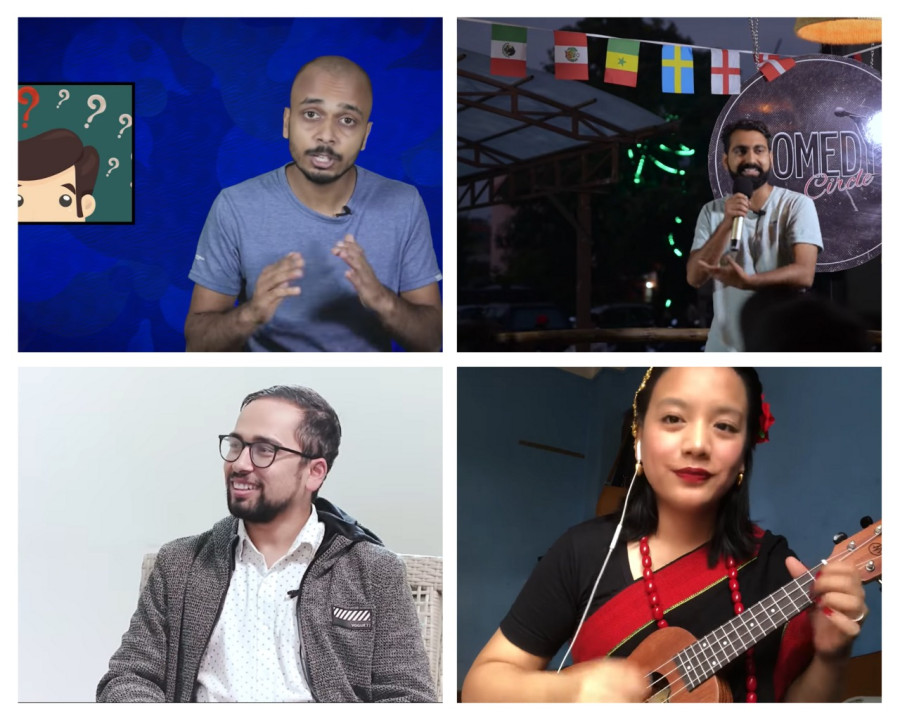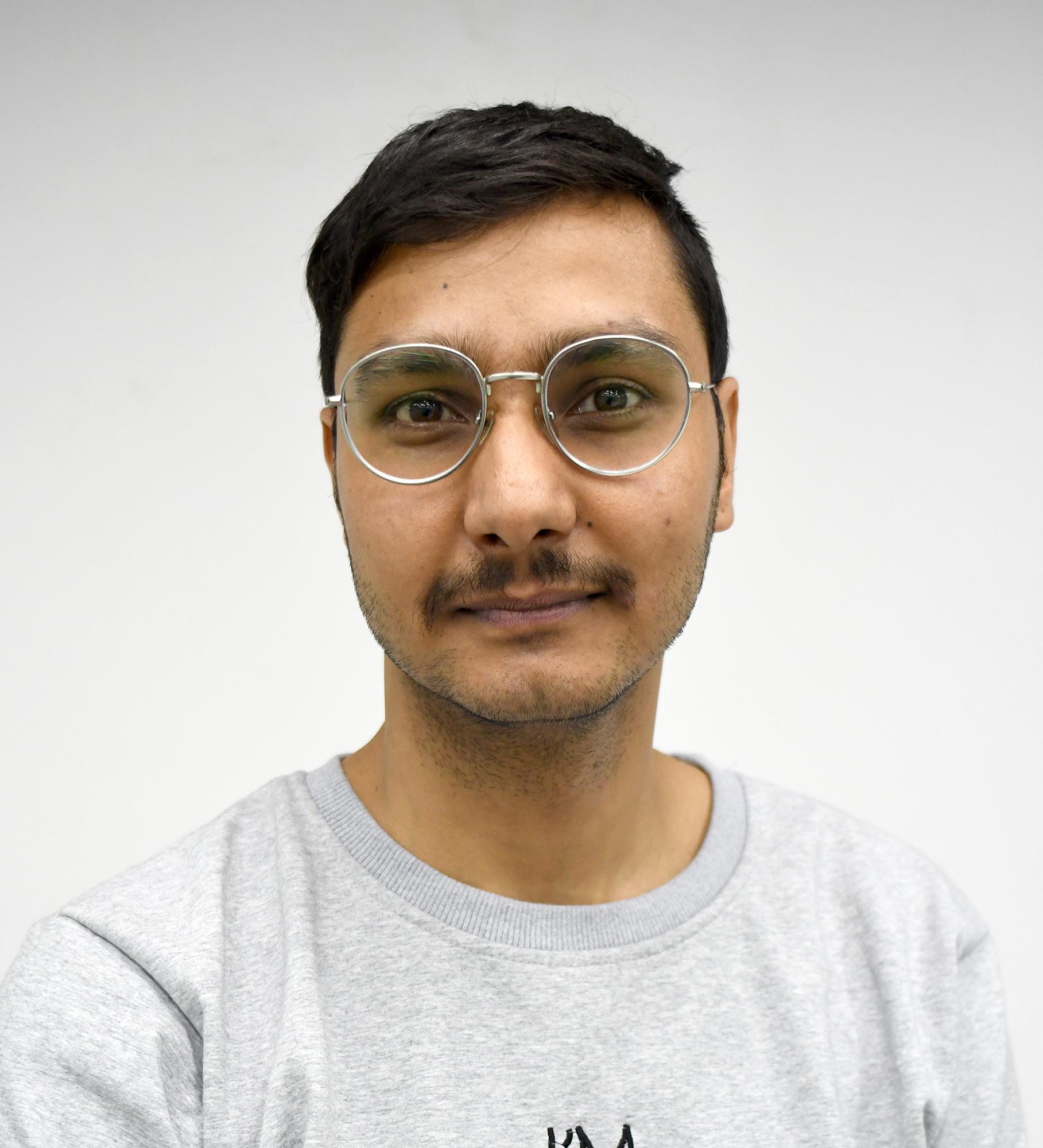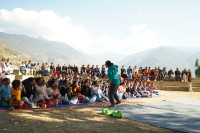Culture & Lifestyle
Behind fake usernames, trolls continue to target YouTubers--without consequences
With a rise in the number of YouTubers, there has also been a rise of hate comments that attack content creators personally. And a majority of the comments have nothing to do with their work.
Shashwat Pant
But the aftermath was something that shocked Singh. The video did quite well on YouTube, amassing a lot of views. It also got a lot of good comments, but it also invited a lot of hate.
“People started to get personal,” says Singh. “It was really tough for me to handle the response. Apart from comments, I started to get texts and calls stating I was a stain in the name of Madhesi and that I disrespected the entire community. I was very scared for a while because there were comments that said they’d beat me up if they saw me.”
The past few years has seen a significant rise in the number of YouTubers in Nepal. And the range of their content is quite wide: There are food reviews, makeup tutorials, reaction videos, news videos and videos on social issues. But with the rise in the number of YouTubers, there has also been a rise of trolls who regularly write hate comments, attacking the content creators personally. And a majority of the comments have nothing to do with the content that has been produced.
Singh has now stopped going through comments because he feels that there is no point in doing so and has realised that there will always be someone who doesn’t like what he does. But that doesn’t mean he doesn’t get hurt.
“If someone doesn’t like my work and the comment is about that, I don’t mind. I will take that as advice and move on. But when someone just uses vulgar words just because he/she can, that's hurtful because it takes a lot to make a stand up skit,” he says.
Like Singh, Binayak Kuikel, who posts videos through his channel Why So Offended, has stopped going through his comments section because he feels that getting these comments are part of being a content creator in today’s age.
“Everyone has an opinion. And I’ve kind of stopped being bothered by it. I feel like I’ve developed a thick skin by now,” says Kuikel. “I believe that these people who comment are the same who would take pictures with content creators if they had the chance.”
He says that creators should try to not be affected by the comments if they believe in what they are doing. “If you get carried away by all the good comments you get, you’ll definitely be affected by all the hate comments you get,” he says.
But he does add that it is worse if you’re a female content creator, you’re bound to get a lot worse hate comments than if you’re a male creator.
“The worst things I have been called are that I am a Bahun and that I’m bald and that I’m an anti-national paid by India. But if one goes through the comment section of female content creators, you’ll find comments which are way worse,” says Kuikel.
Elena Gurung, 21, makes funny videos and uploads them on various social media platforms like TikTok, YouTube and Instagram through her alias Elena Don. She started making short videos on Vine in 2014 and says she has been getting hate comments since then.
“People would come and comment about my face and my body and tell me that I was copying people. In the beginning, when I had just started out, I was just a child and these statements were very hurtful,” she says.
But now she says that she’s learnt to ignore comments, which mostly body shame her. Recently, however, she received two comments that shook her to the core. On a make-up video she had posted on YouTube, a guy commented saying “something was missing from her face”. That missing object, he said, was acid.
“When I think about it I still shake with anger and fear,” she says. “I confronted the guy. Who says things like that? For someone to wish that on another person, what does that tell about the society we’re living in?” she questions.
The other comment she received read: “Nirmala panta ko thau ma elena Don bhako bhae k hunthiyo.” (“What if Elena Don was in place of Nirmala Panta.”)
“When I read things like these, I just want to disappear,” she says. “Things like this really make me anxious. My family can see what type of things people are saying and it’s very disheartening. Any one would be worried when you start getting comments like that. It's vile and disgusting and it's disturbing.”
Even though she’s not taken any legal action just yet, she says that if she continues to get comments like that, she will be reporting it to the authorities.
Rastra Bimochan Timalsena, who’s a lawyer by profession and a content creator who posts videos about social issues under the alias Random Nepali, says these are cases of “freedom from consequences”.
“You comment under a different, random name on YouTube and no one knows you or can do anything to you. That’s why people do this. It’s easy and they can get away from it,” says Timalsena.
But he says that there is a law that can prosecute people who project content that could inflame wrongdoing in society, such as throwing acid on a person. Section 305, 306 and 307 of the Criminal Code Act 207 state that libel and slander are punishable offences and the offender can be jailed for three months and be fined in excess of Rs 30,000. But to take legal action against someone, one needs a person’s real identity.
“To track someone on Facebook is easier, as you can easily get the name as most use their own profiles. Their policy is quite favourable too and it’s easy to find people. But YouTube is a different issue and takes a longer time to catch people as they don’t use their real names,” says Timalsena.
Even Timalsena, who primarily makes videos on social issues, gets hate comments personally attacking him and his family. “I get called a lot of things when I make posts about social and religious issues. If I make a video criticising the government, people will come out calling me anti-national and various other things,” he says.
But he, like Kuikel, has developed a thick skin and doesn’t really care what people say. However, he says comments which get personal do get to him.
“We’re all humans at the end of the day. Even though I tell myself I won’t let it affect me, at the end of the day it will affect me,” says Timalsena. “When they start talking about my family, I do get hurt. But that's the internet, you’ll always have trolls.”
But this hate isn’t limited to content creators, it often spills onto others. Actors and actresses who give interviews on YouTube channels also face similar hate. Comments like “gold digger”, “who did you sleep with to get the role” etc are prevalent in almost all videos, say YouTubers.
To tackle this, a group of Nepali actresses have launched a ‘Zero Tolerance’ campaign which aims to make content creators or the social media platform from deleting hateful comments.
Actress Reecha Sharma, who is part of the campaign, says that they have asked the channels who invite them to delete the comments that are derogatory and hurl foul words at them. “We don’t care about the negative comments that have to do with our professional lives. We are public figures and we have to deal with that. What we want from these channels is to remove the comments that question our dignity and assassinate our character,” says Sharma. “What will my child say when he/she sees the comment 10-15 years from now?”
She also believes that such comments are just a reflection of how our society thinks and says that the root of the problem is that even mainstream media promotes it. “When you have a personality like Rishi Dhamala asking me to tell him how many people I’ve slept with on his TV show, others will ask similar questions and pass on comments related to that for sure,” she says.
Sharma further adds that while a few YouTube channels have started removing such negative comments, unless the national media too gives some space to people where they can talk about issues like harassment and more and more people speak about it, problems will always remain.
But for creators like Singh, Kuikel, Gurung and Timalsena, not creating videos isn’t a choice. Making videos is their passion and source of their income. While they say they do get affected by the hate comments, the positive comments they get drives them to work hard, to produce more content.
“There are people who are nice too, of course. Those people are the reason why creators like us can exist and produce work independently. Many show solidarity and support us. But there will always be this one person who is there just to spread hate,” says Gurung.




 8.75°C Kathmandu
8.75°C Kathmandu















